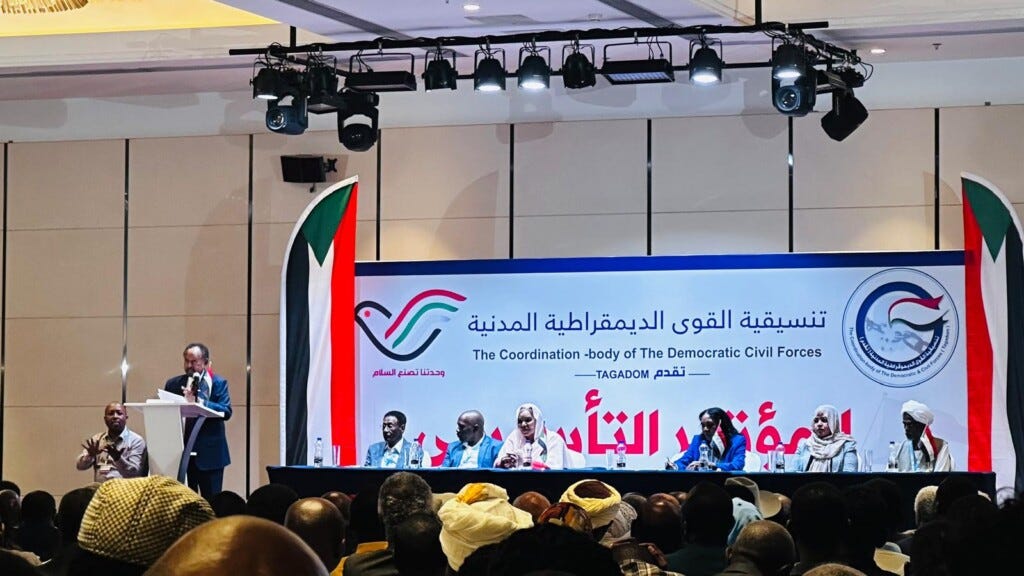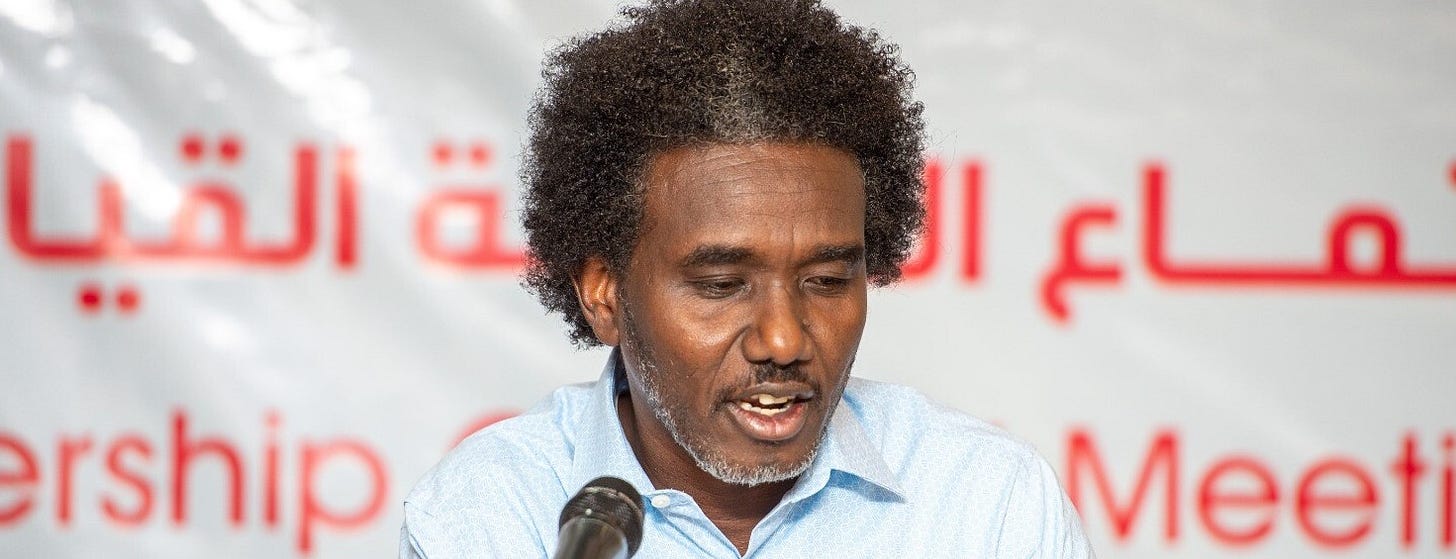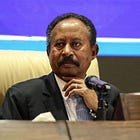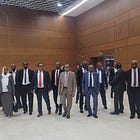Taqaddum splits over government-in-exile proposal
Rift threatens opposition’s anti-war role
Want a better handle on what’s happening in Sudan? Sign up to receive 2-4 weekly emails containing maps, videos, fact-based reporting, and incisive insights from an independent perspective.
The Coordination of Civil Democratic Forces (Taqaddum), Sudan’s largest civilian anti-war coalition, has formally split into two factions following months of internal disputes over the proposal to form a government-in-exile. The decision was announced after a virtual leadership meeting on Monday, chaired by former Prime Minister Abdalla Hamdok, a major development within the coalition that was established to unify civilian opposition against the civil war.
A statement issued by Taqaddum’s leadership body confirmed that the political mechanism tasked with assessing the issue of government legitimacy had reached an impasse. The report concluded that two fundamentally opposing views had emerged within the coalition, making it necessary to separate into politically and organizationally distinct entities.
According to the statement, each faction will now operate independently under a new name and structure, reflecting their divergent perspectives on ending the conflict between the Sudanese military and the Rapid Support Forces, and achieving a sustainable civilian-led democracy.
“The leadership body of the Coordination of Civil Democratic Forces ‘Taqaddum’ held a virtual meeting on Monday, February 10, 2025, chaired by Dr. Abdalla Hamdok, to discuss the issue of legitimacy and the stance on the proposal to establish a government as one of the approved mechanisms for addressing this matter.”
“The meeting approved the report prepared by the political mechanism, which concluded that there are two divergent positions regarding the issue of government. Consequently, the most appropriate course of action is to separate the two factions, allowing each to operate under a politically and organizationally distinct platform with a new and different name.”
“As a result of this decision, each faction will proceed independently from this date according to what it deems appropriate and in alignment with its vision on the war, ways to end it, achieving comprehensive and lasting peace, establishing sustainable democratic civilian governance, and countering the plans of the former regime, its dissolved party, and affiliated fronts.”
“Each group will announce to the public its political and organizational arrangements, as well as the new name under which it will operate separately,” Taqaddum writing on its social media Facebook page said.
The internal division has been brewing for months as the coalition struggled to reconcile differing views on how to counter the legitimacy of the Sudanese Armed Forces (SAF)-led government in Port Sudan. Proponents of the government-in-exile proposal argued that a parallel civilian administration would provide a legitimate alternative to the junta, which has ruled Sudan since the 2021 coup.
However, critics within Taqaddum, including prominent and influential figures, warned that forming a rival government would fragment the opposition, undermine the coalition’s neutrality, and complicate diplomatic efforts to end the war.
The debate reached a boiling point in December 2024, when the leadership body convened a series of meetings in Entebbe, Uganda, to discuss the proposal. While some factions pushed for swift action, others – especially members affiliated with traditional political parties – expressed strong reservations. The National Umma Party played a key role in delaying the decision, arguing that such a move could deepen Sudan’s political divisions and give the military junta justification to escalate its crackdown on civilian groups.
The split marks a significant setback for Taqaddum, which has sought to position itself as a neutral civilian force advocating for an end to Sudan’s devastating civil war that has killed thousands and displaced millions.
The coalition has been under pressure from international actors, particularly the United States, which warned that establishing a government-in-exile could accelerate political fragmentation and reduce prospects for a negotiated settlement. Washington’s concerns came amid claims that RSF figures or those supportive of the group have voiced support for the initiative, potentially eroding Taqaddum’s neutrality.
The fragmentation of the coalition was further underscored by conflicting public statements from senior leaders. On January 30, spokesperson Bakri Al-Jak issued a statement declaring that Taqaddum does not seek to form a government-in-exile and had decided to separate those advocating for one.
However, Al-Hadi Idris, one of Taqaddum’s two deputy leaders and head of the Sudan Liberation Movement-Transitional Council, quickly refuted Al-Jak’s remarks. Idris insisted that no final decision had been made and accused some members of attempting to impose their agenda outside the coalition’s official framework.
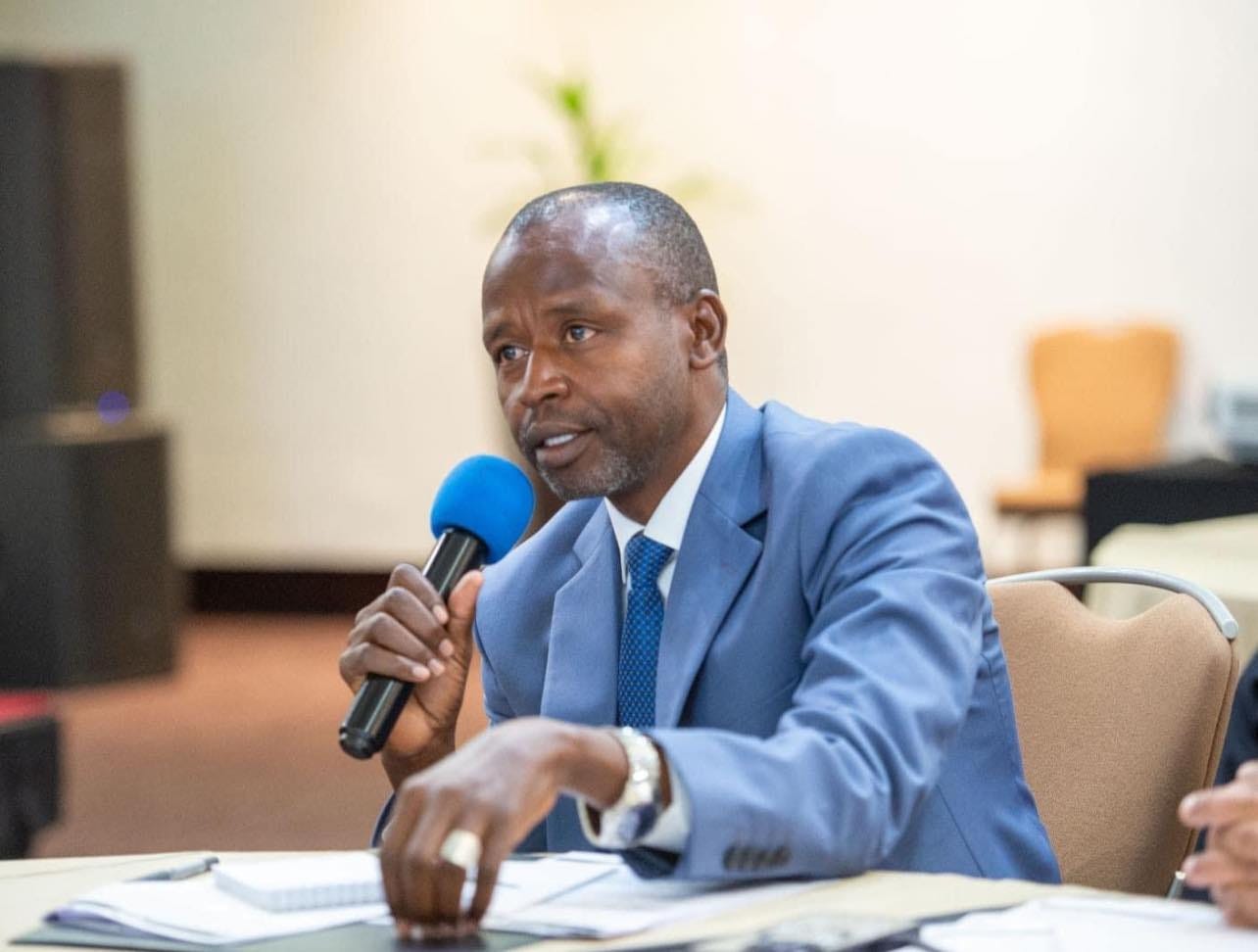
“We view this hasty statement as an attempt to create division within the Coordination, which we strongly reject. The Taqaddum alliance was founded on a basis of political consensus among its founding members, and only they have the right to determine its future. No individual party can unilaterally decide the fate of the Coordination or issue critical decisions without collective approval. We reject any attempts to impose a fait accompli without consulting all partners, and we will firmly and responsibly confront any such actions,” Idris said.
The internal rift reflects broader divisions within Sudan’s civilian opposition, which has struggled to maintain unity amid the complexities of the war. Since the outbreak of the war in April 2023, civilian groups have taken different positions on the war, including some advocating for strict neutrality and a negotiated solution, and others implicitly or actively supporting one warring party of the other.
Taqaddum, initially envisioned as a broad-based platform for civilian forces rejecting both armed factions, against the pro-SAF bloc, now faces an existential crisis as it loses the cohesion that once gave it credibility. The split raises questions about the future of opposition efforts to establish a unified anti-war civilian front as Taqaddum is widely seen as the most established neutral and credible bloc against the war.
Related News Coverage:
Related Analysis:
Support our journalism
Thank you for reading Sudan War Monitor. We do this work because we believe that journalism is one accountability mechanism that ultimately can contribute toward peace and justice in Sudan—however distant that hope may be. Our work is intended to be a resource for humanitarians, civil society, ordinary Sudanese, diplomats, and news media. Subscribe or share to support our work and help “Keep Eyes on Sudan.”


